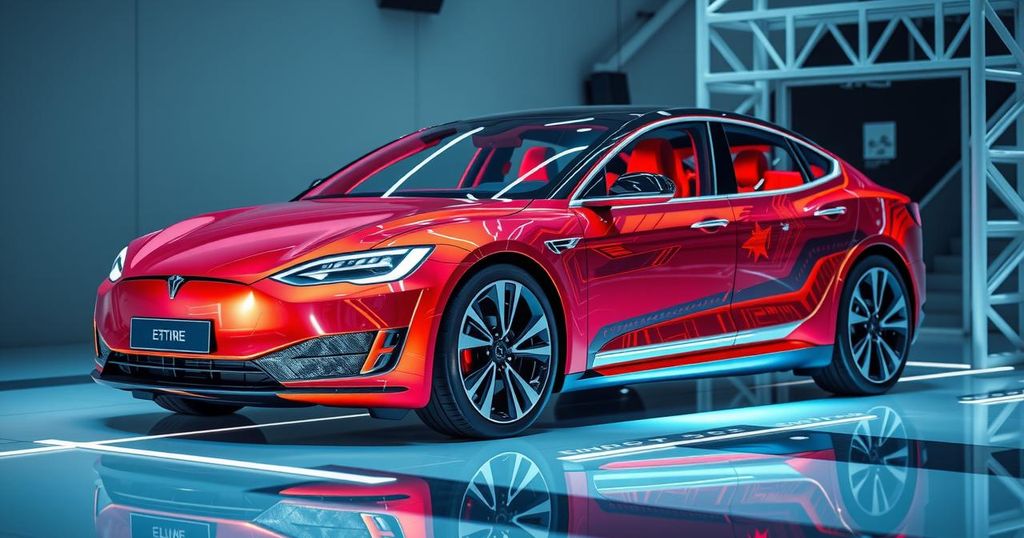Harnessing the Opportunities of China’s Electric Vehicle Success
The article explores the global impact of China’s electric vehicle industry, emphasizing its innovative strategies, robust manufacturing ecosystem, and competitive market dynamics. It critiques Western trade restrictions that hinder international collaboration and suggests that fostering partnerships could help accelerate the transition to sustainable transportation, benefiting all stakeholders involved.
The emergence of electric vehicles (EVs) manufactured in China has sparked both admiration and controversy on the global stage. China’s initiatives in the EV sector, recognized by organizations like the United Nations, illustrate its commitment to sustainable development and its significant role in combating climate change. Unfortunately, some Western media narratives downplay or misinterpret these accomplishments, attributing China’s success to alleged “unfair practices”, which overlook the complexity of its advancements.
Three key factors contribute to the competitive nature of Chinese EVs: relentless innovation, a comprehensive manufacturing ecosystem, and a highly competitive domestic market. Amid increasing geopolitical tensions and climate change challenges, the Chinese EV industry offers a promising avenue for global collaboration.
China’s significant investment in research since the 1990s has fueled a collaborative environment among universities, research institutes, and industries, leading to groundbreaking developments in EV technology. This model of innovation is not exclusive to China; countries like the United States and Germany also utilize similar approaches to foster industrial growth. Cross-border collaborations have expedited technological advancements in the EV sector, highlighting the importance of a cooperative global innovation framework.
Furthermore, China’s evolution into a manufacturing powerhouse is underpinned by an efficient industrial value chain, enabling it to produce high-quality, cost-effective EVs rapidly. The competitive nature of the domestic market compels manufacturers to continuously enhance product quality and reduce prices to meet consumer demands, positioning them favorably against international competitors.
Despite the advantages of EVs in mitigating climate change, certain Western nations have imposed trade restrictions, including tariffs against Chinese-made EVs. These measures not only disrupt global market dynamics but also jeopardize climate commitments by escalating consumer costs and hindering the transition to renewable energy. Such contradictions are particularly evident in the European Union, which has historically advocated for climate action. Limitations on Chinese EV access risk delaying the global shift towards sustainable transportation solutions.
In response to these trade barriers, Chinese manufacturers might consider forming joint ventures and establishing production facilities overseas, echoing strategies adopted by Japanese automakers in previous decades. Emphasizing localized solutions and partnerships with Western counterparts can facilitate cooperative research and development (R&D) efforts, enhancing their appeal in foreign markets despite protectionist challenges.
Fostering cooperation between Chinese and Western governments can further streamline trade by reducing barriers and harmonizing approval processes for traditional and electric vehicles. Collaborative efforts to establish international standards for EV charging, battery technology, and safety can ensure compatibility and interoperability while fostering trust through transparent dispute resolution mechanisms.
In an era characterized by geopolitical uncertainty, economic challenges, and the urgency of climate change, fostering global cooperation emerges as a fundamental strategy for addressing these pressing issues. With its leadership in EV technology and manufacturing, China presents valuable opportunities for Western automakers to navigate the transition to electric mobility. Through open markets and collaborative frameworks, stakeholders can stimulate innovation, reduce costs, and advance global climate objectives.
Ultimately, collective endeavors in renewable energy technologies and electric vehicles will pave the way for sustainable progress that benefits all participants and accelerates the global movement towards cleaner transportation.
The article addresses the rise of China’s electric vehicle (EV) industry and its implications for global markets, particularly amidst climate change debates and trade tensions. It emphasizes the effectiveness of China’s innovation-driven approach, its manufacturing capabilities, and the competitive domestic market that enable it to succeed in EV production. The article contrasts China’s achievements with restrictive trade policies imposed by Western nations, highlighting the potential for collaboration in achieving global climate goals. This context is crucial for understanding the dynamics of international relations in the EV sector.
In conclusion, the advancements of the Chinese EV sector present both challenges and opportunities for global collaboration. While Western trade restrictions risk impeding the transition to sustainable transportation, proactive partnerships and joint innovation efforts can foster growth within an international framework. A united approach is essential for addressing climate challenges and leveraging the transformative potential of electric vehicles, thus ensuring mutual benefits for all market participants.
Original Source: www.chinadaily.com.cn




Post Comment